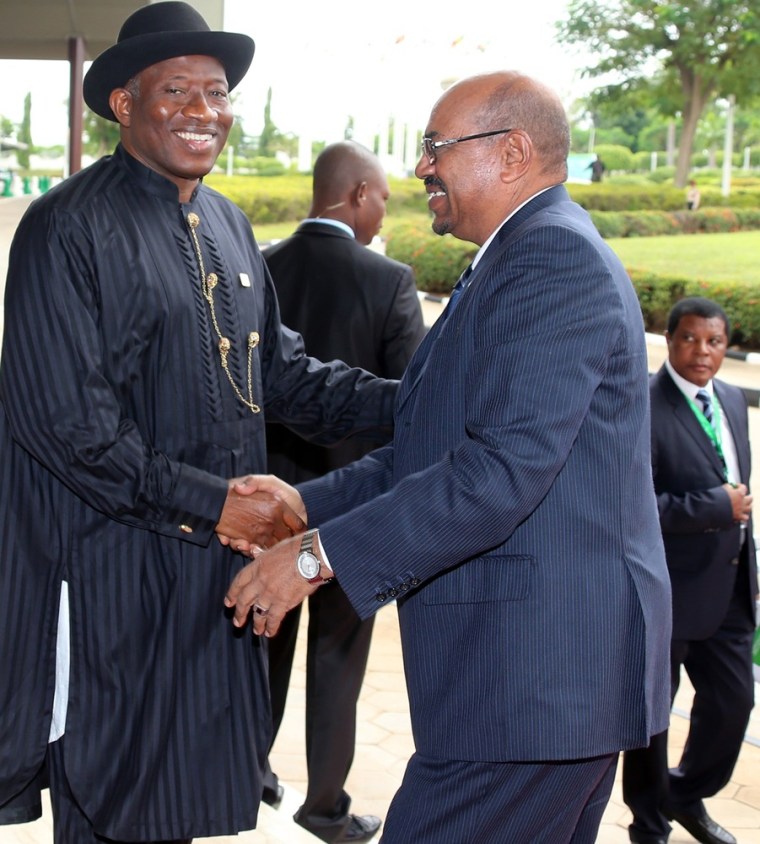The president of Sudan has been allowed to leave a conference in Nigeria, despite the International Criminal Court calling for his "immediate arrest" on charges of genocide and war crimes, officials said Tuesday.
Omar al-Bashir is accused of five counts of crimes against humanity, two counts of war crimes and three counts of genocide against the Fur, Masalit and Zagawa tribes in Darfur, where the U.N. estimates 200,000 people have been killed.
Two arrest warrants have been issued for the former army brigadier, who came to power in 1989 after leading a bloodless military coup.
But while many African countries - including South Africa, Kenya and Malawi - have threatened to act on the warrant, Nigeria allowed him to attend Monday's one-day African Union HIV/Aids summit.
This was in keeping with 2009 vote by African Union states not to cooperate with ICC indictments, a Nigerian official told Reuters.
African enthusiasm for the court has waned over the years, partly owing to a perception that prosecutors disproportionately target African leaders - an accusation the ICC denies.
Bashir's press secretary and his Nigerian hosts denied local media reports that he left the conference early.
"President Bashir returned normally to Khartoum after participating in the summit in Abuja to resume his work," Emad Said, told Reuters.
The ICC noted that it could refer the Nigerian government to the U.N. Security Council for failing to execute an order of the court, of which Nigeria is a member.
A spokesman said a report would be written and the judges would ultimately decide on the appropriate course of action.
Human rights groups in Nigeria had filed a suit with the Federal High Court in the capital Abuja, demanding he be arrested and handed over to the ICC.
"The judiciary in this country has the responsibility to implement legal obligations created by treaties undertaken by Nigeria," the Nigeria Coalition on the International Criminal Court said in a statement.
But Chino Odiawu, a spokesman for the group, said that they hadn't been able to get a local warrant before al-Bashir left the country, although he was confident that it would have been granted.
"It was extremely frustrating," he said. "But we will keep going until we get justice for the people of Darfur."
Nigeria has been forced in the past to hand over the former Liberian president, Charles Taylor, the warlord who began Sudan's devastating civil war in 1989.
The country had promised him a safe haven if he resigned, but in 2006 they succumbed to huge international pressure to hand him over. He was subsequently sentenced to 50 years in jail at the international Special Court for Sierra Leone in The Hague.
Elise Keppler a Human Rights Watch spokeswoman, said al-Bashir "was feeling the heat of the intense pressure for his arrest.”
"Business as usual is over for this head of state suspected of the most serious crimes committed in Darfur,” she said.
“Nigeria and other governments need to play their part in seeing justice done by taking him into custody and surrendering him to the ICC."
Reuters contributed to this report.
Related:
